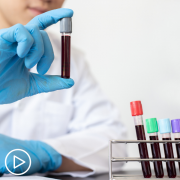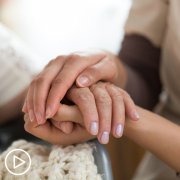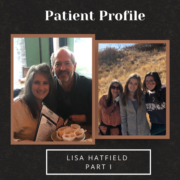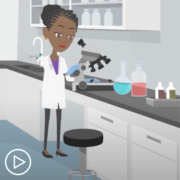What You Should Know About Myeloma Clinical Trial Participation
What You Should Know About Myeloma Clinical Trial Participation from Patient Empowerment Network on Vimeo.
Myeloma expert Dr. Nina Shah shares her view on why patients should consider a myeloma clinical trial and provides advice for finding and participating in a trial.
Dr. Nina Shah is Associate Professor of Medicine in the Department of Medicine at the University of California San Francisco (UCSF) and treats patients at the Hematology and Blood and Marrow Transplant Clinic at UCSF Helen Diller Family Comprehensive Cancer Center. Learn more about Dr. Shah, here.
Related Programs:

Myeloma Treatment: When Should a Clinical Trial Be Considered? |

|

|
Transcript:
Katherine Banwell:
Why should a patient consider participating in a clinical trial?
Dr. Shah:
I am a huge fan of clinical trials, as you probably figured out. And the reason for that is that it’s the only way we know how to do things. And for everything we figured out about myeloma, it’s because patients participated beforehand in clinical trials. So, of course, it’s a way to pay it forward. But aside from that, there’s an experience that a patient can have on a clinical trial that is really unlike other experiences that patients may have. For example, they will be given the opportunity to understand a lot about their disease that maybe they may not have understood before, and they may have the opportunity to try a treatment that might be beneficial.
There are no guarantees in a clinical trial, and that informed consent procedure where the doctor tells you about the risks, benefits, and alternatives, should be very comprehensive and clear. But it does allow for patients to get access to something they may not have had before. And I think one of the other things that’s important is that it’s sort of a concierge service, I would say, with clinical trials, because you have to be monitored very closely. So, of course, all your symptoms have to be known. And you get a little bit more time, I would say, when you participate in a clinical trial because we really want to know the pluses and minuses of these treatments.
Katherine Banwell:
How can patients participate in research? Where do they start?
Dr. Shah:
Participating in research is a great opportunity for patients and something that we’re grateful for as myeloma physicians. There are many ways to look on various websites. There are things like SparkCures. There’s ClinicalTrials.gov. You can look at any academic website. Almost all advocacy groups also have opportunities for you to look at clinical trials.
And any time you get the opportunity to look at patient education sites, they may have a link for you to look for other clinical trials that might be relevant to your particular stage in disease or the particular kind of myeloma that you have. When in doubt, please, if you have a chance, talk to your local oncologist perhaps to maybe refer you to a myeloma specialist. We can do this by Zoom now, so there should be no reason that we can’t be a part of your care team at least for a consultation.










